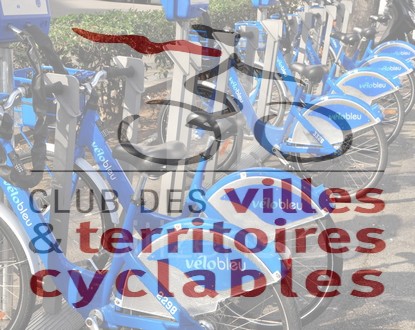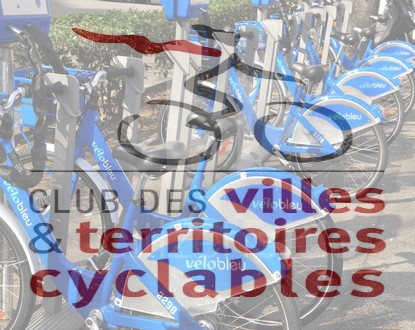As part of its cycling policy, the City of Nice will host the 20th edition of the Bicycle Cities and Territories Club congress on May 29, 30, and 31. This congress, now international, will provide an opportunity, in addition to debates, to discover the “new collections” of bicycles and try cycling as a gentle means of transportation.

Round tables will be organized to open reflections on rich and diverse themes. For three days, participants will also be able to learn, exchange, and discover at a “Bicycle Salon” the range of bicycle products and innovative services regarding parking, urban furniture, electronic payment, mapping…
The Nice Côte d’Azur Metropolis is a member of this network of more than 1300 local municipalities that act in favor of bicycle mobility.
Committed to a strong policy on alternative mobility, notably evidenced by the development of cycling facilities, the Metropolis now boasts 140 km of bike lanes (including 63 km for the City of Nice), representing an increase of nearly 60% compared to the 39 km of existing lanes in the city in 2008.
The Club of Parliamentarians for Cycling includes 95 deputies and senators, that’s one in ten parliamentarians!
Created at the initiative of the Bicycle Cities and Territories Club, it aims to promote the use of cycling as a full-fledged mode of transport in all its forms—utilitarian, leisure, tourism, sport—and brings together deputies and senators from all political backgrounds.
“The bicycle is now well identified as a tool serving sustainable mobility and territorial development,” emphasizes Denis Baupin, deputy of Paris, vice-president of the National Assembly, and president of the Bicycle Cities and Territories Club from 2004 to 2008. “Every year in France, more bicycles than cars are sold. Therefore, we now need a national bike policy in our country without delay, just like our European neighbors!”
Focus on the preliminary results of the survey ‘The Bicycle and the French’
The preliminary results are very encouraging for the development of the everyday use of bicycles.
Cycling increases both for leisure and for the “utilitarian” mobility of the French.
• 45.5% of people aged 15 and over have cycled at least once in the past 12 months, nearly 1 in 2 French people. According to the study “The Bicycle Economy” (Atout France 2009), it was 40% in 2007 over the same area.
• 97.9% claim to have learned to cycle, and 78.2% claim to cycle very well.
These figures confirm that cycling is no longer a declining or residual mode. “Something is happening” in terms of cycling practices and representations among the French.
Utilitarian bicycle use is increasing. Recreational use, already well established, is growing.
• 14% use the bicycle for “utilitarian” reasons, such as going to work, school/university, or shopping (among the 98% of the population who have learned to cycle).
The bicycle is settling—not just in practice—in lifestyles.
• Intermediate professions (nurses, teachers, social workers) use bicycles more (63.5% of respondents) compared to the overall population, closely followed by CSP+ (senior executives and liberal professions) with 61.2%.
• One-third of those aged 15 and over state that they will cycle for their usual trips over the next two years.
• As a reminder, more bicycles are sold than cars each year in France: 3.2 million bicycles / 2.25 million new cars.
Owning a bicycle or having access to a bike-sharing system (BSS) encourages use and more frequent use.
• 70% of respondents who own a bike have used it in the past 12 months, and 17% have used it at least a few days per week. However, only 56% of those who use a household bicycle use it, and only 7.5% use it regularly.
Commuting by bike emerges alongside public transport and has significant potential.
• Of the 28.5 million active individuals in France, 5.3% already use bicycles to commute to work at least a few days per week.
The bicycle is the “two-wheel solution”—not the motorized two-wheeler.
• Among the 98% of the French population who have learned to cycle, 5.3% use it for commuting a few days a week, compared to 3.4% using a motorized two-wheeler. For shopping, errands, or leisure activities, 15.9% use bicycles versus 8.4% for motorized two-wheelers.
A public event: free Bicycode bike engraving for all, on Thursday, May 30, from 12 p.m. to 2 p.m. and from 5 p.m. to 7 p.m., in front of the Palais Nice-Acropolis.
The Bicycode is a bike marking system by engraving unique and standardized numbers at the national level. It allows for the return of bicycles to their owners in case of theft.



